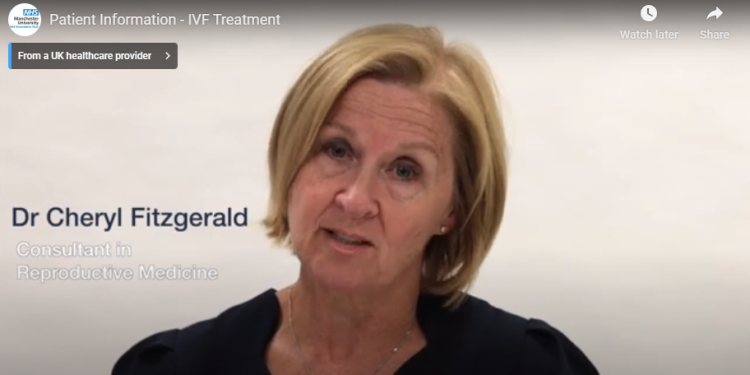Find A Supplier
In vitro fertilization (IVF) is an assisted reproductive technology that has revolutionized the way many individuals and couples can achieve pregnancy. IVF is a medical procedure that involves fertilizing an egg with sperm outside of the body, in a laboratory setting, and then implanting the resulting embryo into the uterus.
The IVF process typically begins with hormonal stimulation of the ovaries to produce multiple eggs. These eggs are then retrieved through a minimally invasive procedure. Meanwhile, sperm from either a partner or a donor is collected and processed. In the laboratory, eggs and sperm are combined to facilitate fertilization, resulting in the formation of embryos. These embryos are cultured for a few days before one or more of the healthiest ones are selected for transfer into the woman's uterus.
IVF is commonly used to overcome various causes of infertility, including fallopian tube blockages, male infertility issues, ovulation disorders, or unexplained infertility. It can also be employed for individuals or couples with genetic conditions who wish to avoid passing them on to their offspring.
While IVF has brought hope to countless people, it is not without challenges. The process can be physically and emotionally demanding, with no guarantee of success in every attempt. Multiple rounds of IVF may be necessary for some, increasing the financial and emotional burdens.
However, IVF has a high success rate, and continuous advancements in technology have improved outcomes and made it a more accessible option. It has allowed millions of people worldwide to realize their dreams of parenthood and has reshaped the landscape of reproductive medicine, offering new possibilities for those facing fertility challenges.
- What is IVF? - In vitro fertilization (IVF) is a fertility treatment method where eggs and sperm are combined outside the body in a laboratory to create embryos, which are then transferred into the uterus for potential pregnancy.
- Who can benefit from IVF? - IVF is often recommended for couples or individuals with various fertility issues, such as blocked fallopian tubes, male infertility, unexplained infertility, or genetic disorders.
- How does IVF work? - The process involves ovarian stimulation, egg retrieval, fertilization in the lab, embryo culture, and embryo transfer into the uterus. Hormonal medications are often used to control egg maturation and retrieval timing.
- What are the success rates of IVF? - Success rates can vary based on factors like age, cause of infertility, and the clinic's expertise. On average, the success rate per cycle is around 20-40% for women under 35.
- Is IVF safe? - IVF is generally considered safe, but like any medical procedure, it carries some risks, including multiple pregnancies and ovarian hyperstimulation syndrome (OHSS). Your healthcare provider will discuss potential risks with you.
- How many embryos should be transferred? - The number of embryos transferred depends on various factors, including age and embryo quality. Guidelines aim to minimize the risk of multiple pregnancies.
- Is IVF covered by insurance? - Insurance coverage for IVF varies widely. Some plans offer partial or full coverage, while others do not cover it at all. Check with your insurance provider for details.
- Are there alternatives to traditional IVF? - Yes, alternatives include intracytoplasmic sperm injection (ICSI), egg freezing, donor eggs or sperm, and gestational surrogacy.
- How long does an IVF cycle take? - An IVF cycle typically takes several weeks, from ovarian stimulation to embryo transfer. Exact timelines may vary.
- Does IVF guarantee pregnancy? - IVF offers no guarantee of pregnancy, but it significantly improves the chances of conception, especially for those with specific fertility issues.
- What is the cost of IVF? - The cost of IVF varies widely by location and clinic. It can range from a few thousand to tens of thousands of dollars per cycle.
- Are there age limits for IVF? - Most IVF clinics have age limits for patients, typically ranging from late 40s to early 50s. These limits are due to declining success rates with age.
- Can IVF be emotionally challenging? - Yes, the emotional toll of IVF can be significant due to the uncertainty, stress, and waiting associated with the process. Counseling and support can be beneficial.
- Are there any lifestyle changes recommended during IVF? - Maintaining a healthy lifestyle, including a balanced diet, regular exercise, and stress management, can support IVF success.
- How many IVF cycles are typically needed? - The number of IVF cycles required varies from person to person. Some individuals or couples achieve success in one cycle, while others may need multiple attempts before achieving pregnancy. Your doctor can provide guidance based on your specific situation.
IVF Treatment: A Comprehensive Guide for UK Families
What is IVF?
In Vitro Fertilisation, commonly known as IVF, is a procedure used to help individuals or couples conceive a child. It involves the fertilisation of an egg outside the female body, in a lab dish. Once the egg is fertilised and becomes an embryo, it is then implanted into the uterus. This treatment is often pursued when other fertility methods have not been successful.How Does IVF Work?
The IVF process typically involves several steps. Initially, ovulation induction is carried out to stimulate the ovaries to produce multiple eggs. This is followed by egg retrieval, where the eggs are collected from the ovaries. Sperm is then gathered and used to fertilise the eggs in a laboratory. The resulting embryos are monitored, and the healthiest one(s) are selected to be transferred into the woman’s uterus. If successful, the embryo will implant and develop into a pregnancy.Why Choose IVF?
IVF is an option for many individuals and couples facing infertility challenges. Common reasons include blocked fallopian tubes, male factor infertility, ovulation disorders, premature ovarian failure, and unexplained infertility. Same-sex couples and single parents may also use IVF with donor sperm or eggs to conceive.What to Expect During IVF Treatment
Embarking on IVF treatment can be both physically and emotionally taxing. Patients should be prepared for frequent clinic visits, hormonal injections, and the stress of waiting for results. Comprehensive counselling and support services are often available to help manage the emotional aspects of the journey. It’s crucial to have a support system in place, whether it's through friends, family, or online communities like MumsNet.Cost and Accessibility in the UK
The cost of IVF can vary significantly in the UK, and it’s important to research and understand the financial commitment involved. The NHS may offer IVF treatment, but eligibility criteria can be stringent and waiting lists long. Many private clinics offer IVF, but costs can be substantial, often ranging from £4,000 to £8,000 per cycle. Financial assistance and financing options may be available.Success Rates and Considerations
IVF success rates can vary based on multiple factors including age, medical history, and the specific cause of infertility. Younger women generally have higher success rates. It’s important to discuss individual circumstances with a healthcare provider to get a realistic understanding of the odds. Resources like MumsNet can provide anecdotal experiences and support throughout the IVF journey.Frequently Asked Questions
What is IVF?
IVF (In Vitro Fertilisation) is a process where an egg is fertilised outside the body, in a special laboratory, before being implanted into the uterus.
Who might need IVF?
IVF may be recommended for couples with infertility issues, such as blocked fallopian tubes, severe male infertility, or unexplained infertility. It's also an option for same-sex couples or single women who wish to conceive.
What is the success rate of IVF in the UK?
The success rate of IVF varies depending on several factors, including the age of the woman, the cause of infertility, and the clinic's specific success rates. On average, around 30% of IVF treatments result in a live birth in the UK.
How much does IVF treatment cost in the UK?
The cost of IVF in the UK can vary widely but typically ranges from £5,000 to £8,000 per cycle, including medication and consultations.
Is IVF treatment available on the NHS?
Yes, IVF treatment is available on the NHS in the UK, but eligibility criteria and the number of cycles funded can vary by region.
What are the main steps involved in an IVF cycle?
The main steps in an IVF cycle include ovarian stimulation, egg retrieval, fertilisation, embryo culture, and embryo transfer.
What medications are used during IVF?
Medications used during IVF may include fertility drugs to stimulate the ovaries to produce multiple eggs, as well as drugs to help prepare the lining of the uterus for implantation.
How long does an IVF cycle take?
A full IVF cycle can take about 4 to 6 weeks from the start of medication to the embryo transfer.
Are there any risks associated with IVF?
Risks of IVF include ovarian hyperstimulation syndrome (OHSS), multiple pregnancies, and complications from the egg retrieval procedure.
Can lifestyle changes improve the success rate of IVF?
Healthy lifestyle choices such as maintaining a balanced diet, regular exercise, quitting smoking, and reducing alcohol intake may improve IVF success rates.
What is ICSI and how does it differ from IVF?
ICSI (Intracytoplasmic Sperm Injection) is a variation of IVF where a single sperm is directly injected into an egg to assist fertilisation. It's often used in cases of severe male infertility.
Can IVF be used for genetic screening?
Yes, preimplantation genetic testing (PGT) can be performed during IVF to screen embryos for genetic conditions before implantation.
What should I expect during an embryo transfer?
During an embryo transfer, the fertilised embryo is placed into the uterus using a thin catheter. It's typically a quick and painless procedure.
How soon after IVF can I take a pregnancy test?
You can usually take a pregnancy test about two weeks after the embryo transfer to determine if the treatment was successful.
What support is available for couples undergoing IVF?
Many clinics offer counselling and support groups. Online forums, such as those on MumsNet, provide a community for sharing experiences and advice.
Useful Links
Useful links from: How to apply for NHS funding to treat infertility
- NHS - Getting fertility treatment Detailed guide on how to access and apply for fertility treatment through the NHS, including eligibility criteria and different treatment options.
- NHS - Overview: NHS infertility and IVF treatment Provides an overview of infertility, available treatments, and how to proceed under the NHS system, including steps for diagnosis and referral.
- Fertility Network UK - Funding for Fertility Treatment Information from the Fertility Network UK charity about how to apply for NHS-funded fertility treatment, including advice on navigating the application process.
- Human Fertilisation and Embryology Authority (HFEA) - Funding for treatment Details provided by the regulatory authority on funding options for fertility treatment, including NHS funding and how to find clinics that meet your needs.
Useful links from: Female infertility explained
- NHS - Female Infertility Comprehensive guide by the NHS explaining female infertility, including causes, diagnosis, and treatment options.
- Tommy's - Fertility Problems Information from Tommy's charity on various fertility problems, including female infertility, treatments, and support options.
- Fertility Network UK - Infertility in Women Fertility Network UK provides detailed information on infertility in women, its causes, how it's diagnosed, and possible treatments.
- NHS - Infertility Overview An overview by the NHS on infertility, discussing both male and female infertility, with links to deeper resources.
Useful links from: Fertility treatments on the up, but not via the NHS
- Fertility Network UK Fertility Network UK provides support and information for those experiencing fertility issues, offering guidance on both NHS and private treatment options.
- British Fertility Society The British Fertility Society offers valuable resources and information on fertility treatments, including the latest advancements and options outside the NHS.
- Human Fertilisation and Embryology Authority (HFEA) The HFEA website provides comprehensive information on fertility treatments in the UK, including data on success rates and advice on choosing private fertility clinics.
- National Institute for Health and Care Excellence (NICE) NICE guidelines offer evidence-based recommendations on fertility treatments, covering both NHS and private options, to help individuals make informed decisions.
Have you found an error, or do you have a link or some information you would like to share? Please let us know using the form below.
- Ergsy carfully checks the information in the videos we provide here.
- Videos shown by Youtube after a video has completed, have NOT been reviewed by ERGSY.
- To view, click the arrow in centre of video.
- Most of the videos you find here will have subtitles and/or closed captions available.
- You may need to turn these on, and choose your preferred language.
- Go to the video you'd like to watch.
- If closed captions (CC) are available, settings will be visible on the bottom right of the video player.
- To turn on Captions, click settings .
- To turn off Captions, click settings again.



